Get into gardening this summer
Home contractor Skip Bedell shares best products to help get you into gardening.
When it comes to home improvements, the reason for summer projects likely fall into one of two categories.
Either you're intending to complete projects that make sense to finalize in warm weather like painting, or you're hoping to get tasks completed before it's too cold out like fixing shingles.
Summer is also the perfect time to get your yard in tip-top shape and add new elements to your indoor or outdoor space to enjoy the rest of the season.
5 DIY PROJECTS TO HELP SELL YOUR HOME
Here is a list of home improvement projects that are most ideal to complete during summer.
- Paint inside and outside
- Create a backyard oasis
- Install a pool
- Power wash
- Replace windows
- Work on the landscaping of your yard
- Start a garden
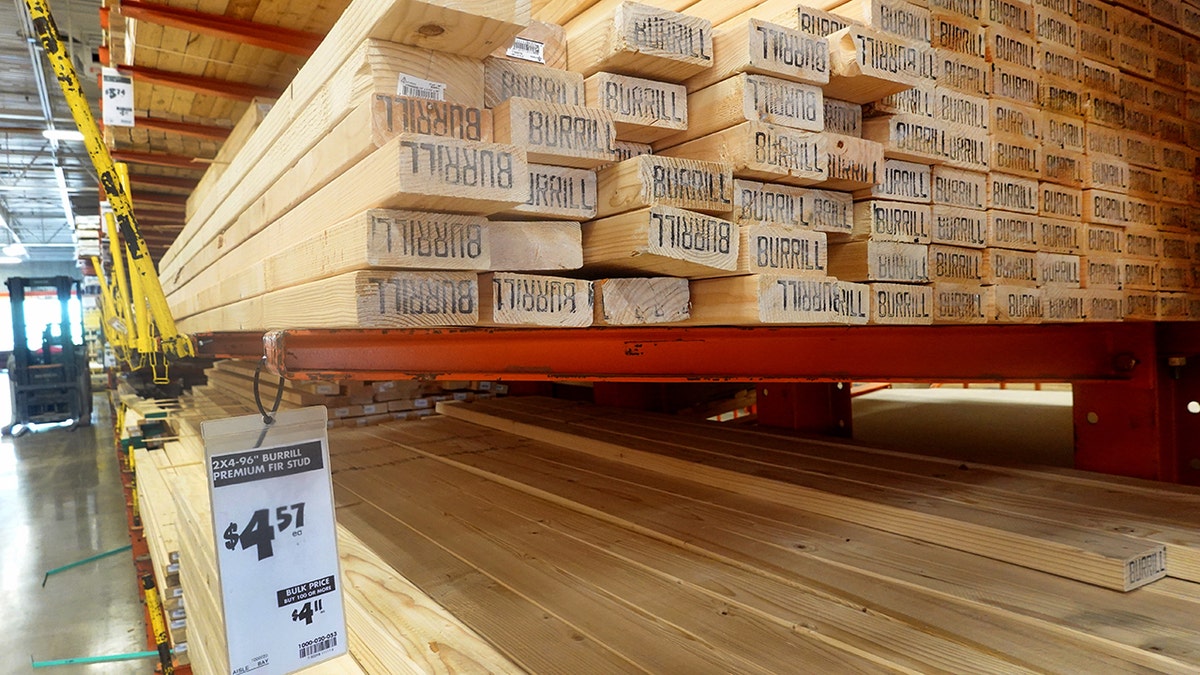
There are so many home improvement projects you can take on this summer. (Scott Olson/Getty Images)
1. Paint inside and outside
While summer for some locations in the U.S. is a great time to paint the exterior of your home, it's the least ideal time for other locations.
Before you get started on an exterior paint job, consider the location of your residence.
"I've been in business for 11 years, and everyone has this idea," said Chris Fago owner of CKF Painting & Home Improvement Services, LLC in Bradenton, Florida.
"Everyone is used to northern seasons, and they decide to paint exteriors in the summer, which is by far the worst time."
If you're looking to save a little money and complete the exterior paint job yourself, get started with a few important steps, said Fago.
"Pressure-wash the house to prepare the surface and get it nice and clean," he said. "Cut all plants at least 2–3 feet away at all times so when the wind blows they don't stick to the surface of your home."
Additionally, before you start painting, you should dig a small trench, about 6–10 inches, around the perimeter of your home to paint below the soil line.
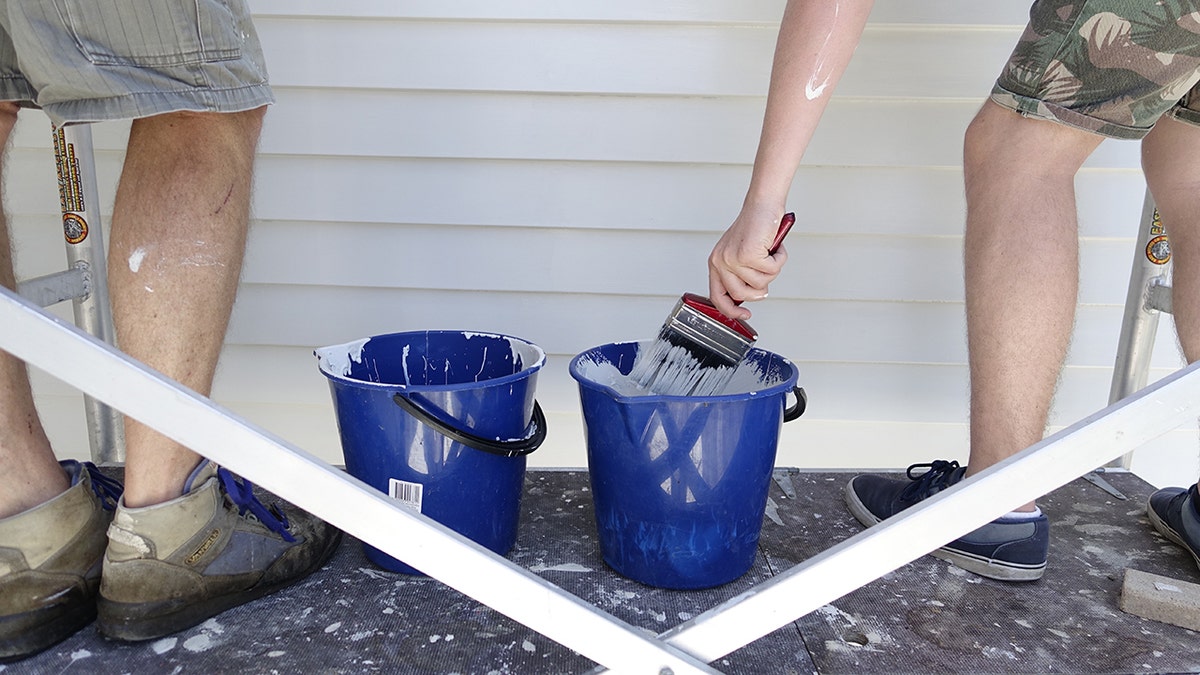
Painting is a project best done in summer while the weather is warm. (Getty Images )
For those who would prefer outsourcing the work, ensure a job well done by recruiting diligent and honest workers for the job.
6 BIG MYTHS ABOUT HOME IMPROVEMENT PROJECTS
"You'll want to know what paints they're using," Fago said. "A quote may say they're painting with latex, but what does that mean? There are a million different grades, and they could charge you for high grade and use junk latex."
Fago said you should know what grade is being used and actually see it on the job.
When painting inside, you’ll want to open up all your windows, which is a lot more practical to do in the summer months.
For outdoor paint projects, it makes a lot more sense to get this done when the weather is warmer, and you can avoid rain, snow and hail.
For indoor paint jobs, you can paint whenever is most ideal for you, though it is best to do it prior to moving into your home.
"Take the time to tape off the floor where baseboards meet tile or laminent," said Fago. "Always cover everything with plastic and tarps, including the floor."
Fago also recommends the following:
- Start from the top down and paint the ceiling first, then the walls, then the trim
- Take off the wall plates for the outlets
- When cutting or edging, cut in the walls first and then roll to avoid the halo effect
2. Create a backyard oasis
Your backyard can be a great place to relax and host friends and family members. If you have always wanted to expand the features of your backyard, summer is the most ideal time to do so.
Add more seating to your yard, lay a patio down with concrete, build an outdoor kitchen or bar area, etc.
If you don't have the budget for major backyard redesigns, there are a number of ways you can liven up your outdoor space on a budget.
- Add a day bed and an umbrella
- Set up a pergola with additional outdoor seating and tables
- Build a private nook with pallets
- Hang tealights around fence posts
- Create a privacy wall with hanging plants
- Add neutral or colorful outdoor rugs
- Hang a TV in a corner where an outlet is available
- Set up a bar area with movable furniture like bar carts
- Purchase large pots and fill them with stunning plants
- Add bird feeders to your front or backyard
3. Install a pool
If you live in a state like Florida, Louisiana or Texas, a pool is a must-have to survive the summer heat.
Days of extreme heat spent dipped into a cool pool make the high temperatures much more bearable.
For states with year-round warm climates, pools can be installed pretty much whenever desired, though residents should avoid hurricane and rainy seasons.
"It has to be 70 degrees, warm and sunny," said Jessica Gersin, president of Lillie's Pool & Spa Cleaning in Perry, Ohio. Gersin is a pool installation and maintenance professional with over 25 years of experience in the industry.
"It can't be wet, no rain, or everything won't set correctly."
For Midwesterners, the end of May is an ideal time for installation, but beware you'll want to get on a pool company's schedule now for next year.
SWIMMING POOL ALTERNATIVES FOR YOUR HOME THAT WON'T BREAK THE BANK
Before pool installation, in or above ground, you'll need to contact a pool company for a site evaluation. Specify your preferred location of the pool, the design, additions like the depth, size, tanning ledges, diving boards, slides and more.
Dependent upon your budget, the size of your installation and the design specifics, you can get a pool added to your backyard pretty quickly.
"You may not get the pool where you want it, so the evaluation is very important," said Gersin. "But installation for an above-ground pool can be done easily. They'll show up with a machine, strip the ground, put the pool up in two hours, fill it and usually by the next day you're swimming."
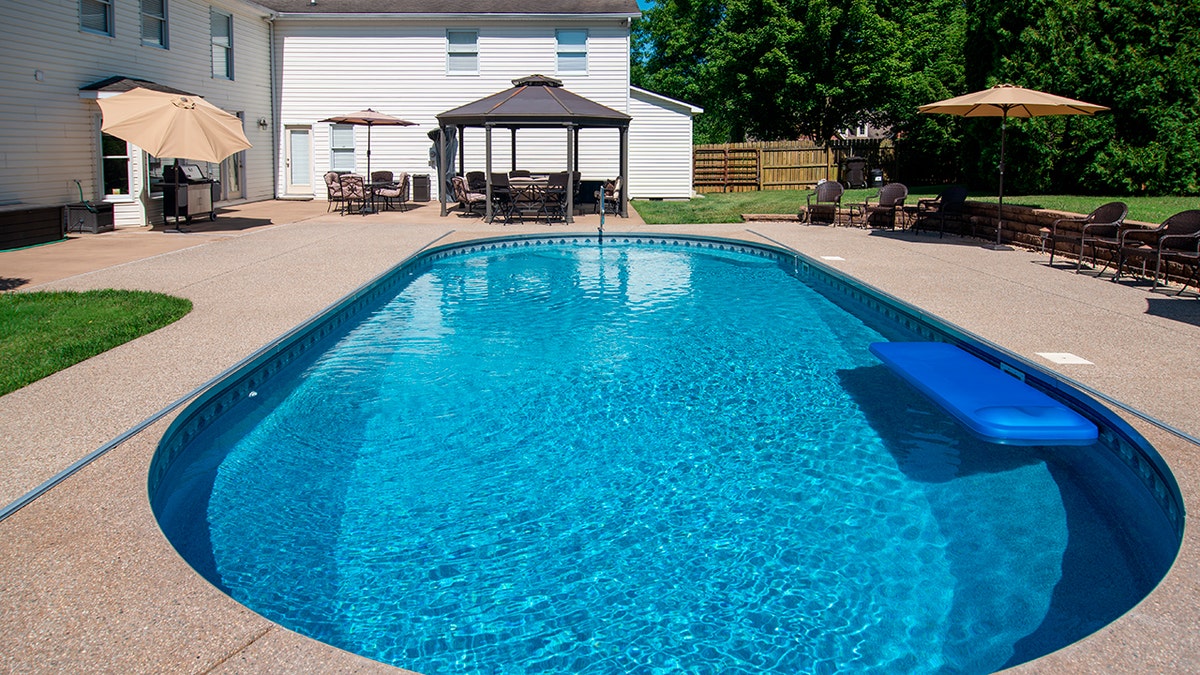
The installation of an in-ground is a huge project, but an above ground pool is a simpler, cheaper process. (Jim Lane/Education Images/Universal Images Group via Getty Images)
The timeframe for ensconcing an in-ground pool can be much longer depending on the type of pool.
Gunite pools can take 1-1.5 months to install as the concrete needs to be cured and sealed whereas fiberglass pools can take a few days.
For those with a smaller budget or who aren't interested in breaking ground, an above ground pool may be the best option.
"There's a misconception that an above ground pool is for people who can't afford an in-ground pool," Gersin said. "In-ground pools actually used to decrease property value. I've seen in-ground pools go in for $160,000-$180,000. Above ground pools can cost between $15,000-$20,000, so it's not even comparable."
Keep in mind that above ground pools need proper care, too. This includes testing pH levels of the water, adjusting chemicals, vacuuming weekly, scrubbing and more to maintain cleanliness through the summer months.
In Midwestern states like Ohio, Michigan and Indiana, where it snows for part of the year, you'll need to winterize your above ground pool following summer months.
4. Power wash
Power-washing your house, driveway or deck can give it a completely different look. You may not realize how much dirt and grime build up on the outside of your home until you pressure-wash it.
If you don’t have a power washer of your own, and don't have the budget to purchase one, look into renting one from your local hardware store.
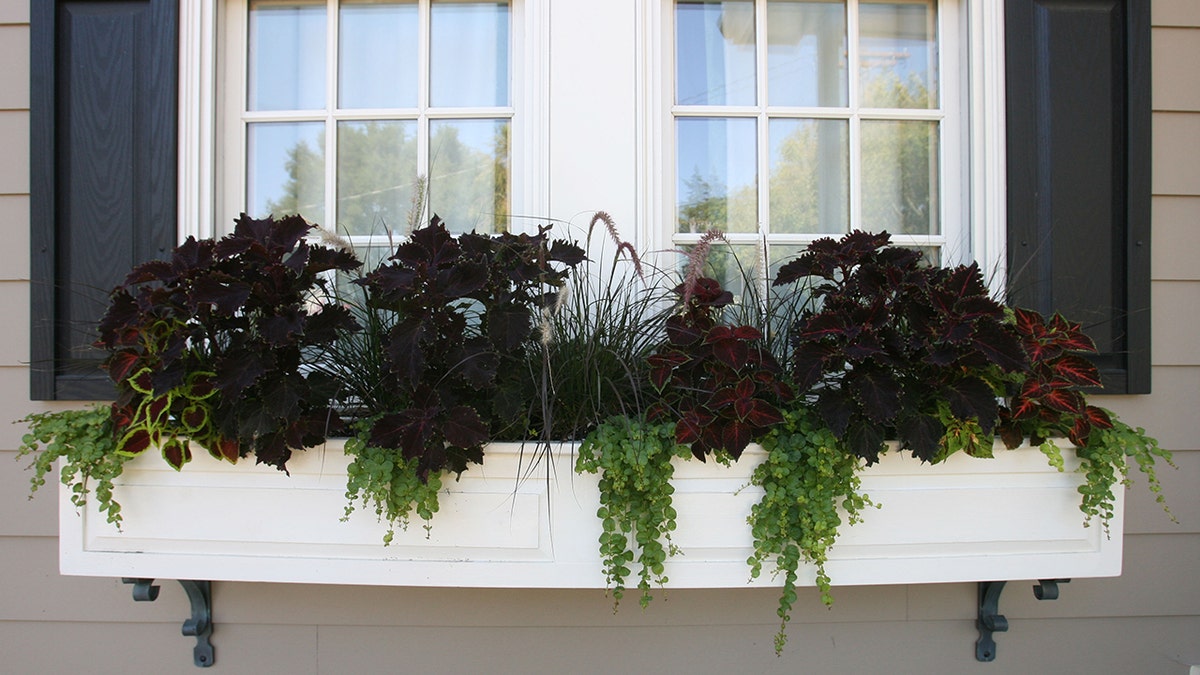
Make sure all your windows are in good shape before the cold winter months. (Mark Constantini/San Francisco Chronicle via Getty Images)
5. Replace windows
Replacing windows can be very expensive. This is a home improvement project you maybe want to plan six months to a year in advance depending on how many windows are needed.
The type of window you need is also a cost factor you should consider.
6. Work on the landscaping of your yard
Summer is an ideal time to give your yard a little extra love. Whether you're planting grass, flowers or new trees, it's most ideal to do so in the summer.
If you intend to do some of your own landscaping work, you can undertake mowing, basic planting, accruing your own lawn or other low maintenance projects.
"You'll need topsoil and grass seed," said Patrick Borally Jr. owner of All Star Services in Cleveland, Ohio.
Borally has 10 years of experience in the landscape construction industry. "You need to cultivate the dirt, throw premium soil on top, fertilizer on top of that, then grass seed and straw."
AI-POWERED ROBOT MOWER CUTS YOUR LAWN AS YOU SIT BACK
The straw protects the seed from being eaten by birds. Borally emphasized the need for watering plants and grass, especially on long, hot summer days. Water for 15 minutes in the morning and 15 minutes in the evening and avoid the middle of the day as the water will simply evaporate.
"In 2–3 weeks, you'll have a full lawn," said Borally.
For larger projects or if the low maintenance ones aren't of interest to you, you'll want to hire an expert, especially when introducing new plants like bushes and trees to your yard.
"Rule of thumb is to set them two feet away from each other, but it all depends on what size plant you're planting," Borally said. "If it's a large tree that's going to get 30 feet, you have to give it more space."
Dogwood trees, Japanese maples and evergreens are popular trees to plant in the summer months. Borally cautions that each tree usually takes three to four years to see good growth and a healthy tree.
While there are some landscaping projects that take a few weeks to impress, others take much longer, and it's important to have patience.
7. Start a garden
Growing fruits, vegetables, and herbs from your own garden is a fulfilling project for those who partake. Gardens can be tricky to start if you've never planted one before. Be advised that they do need a lot of time and attention to keep them growing.
"Most tomatoes are a 90-120 day crop," said Taylor Rhodes, owner of Frank's Produce and Greenhouses in Elkridge, Maryland. "Brussels sprouts are probably the longest crop. They're about 150 days to maturity."
Vegetables that grow well in the summer include tomatoes, especially Early Girls, peppers, eggplant, squash, zucchini, pumpkin, watermelon, cantaloupe and green beans.
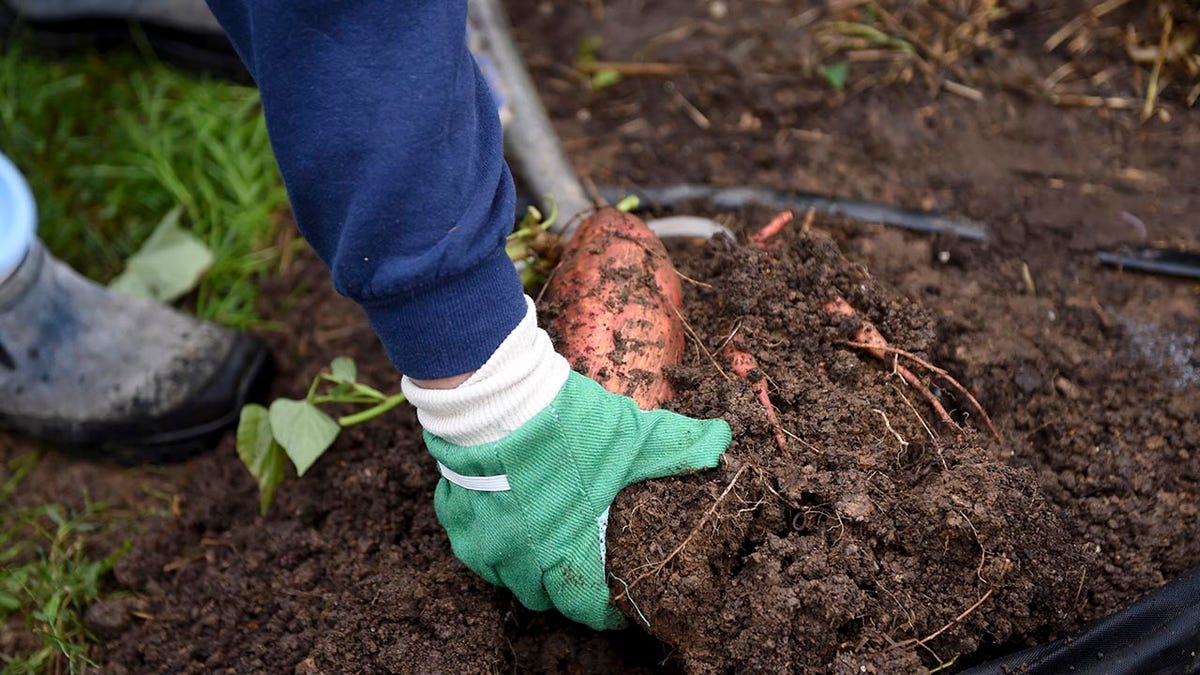
Why not get a garden going this summer? Fill it up with all the fruits and vegetables you choose. (Lauren A. Little/MediaNews Group/Reading Eagle via Getty Images)
You can plant from seeds, or use starter plants to begin.
CLICK HERE TO SIGN UP FOR OUR LIFESTYLE NEWSLETTER
"I would suggest buying a starter plant," said Rhodes. "Start with herbs. They're easy if you want to get into gardening."
Rhodes advises doing plenty of research, talking to experts and even testing your soil before purchasing seeds, starter plants or gardening equipment.
"Go to a local nursery to be advised of soils, what to plant, where to plant based on sun exposure," she said. "You can go to your local extension office and give a soil sample to test. They'll tell you what you need to add to the soil for it to thrive."
It's also important to know your location and climate, what veggies and herbs will thrive, and which would be a total waste of your time, especially in your first year.
CLICK HERE TO GET THE FOX NEWS APP
"Cilantro does not grow in Maryland because it's so humid," said Rhodes.
Additionally, Rhodes instructs being prepared with not only plenty of information, but soils and soil amendments, fertilizer composts, water, sun and, of course, the plant for a container garden.
"You can never water too much, but you can water too often," she said. "You want to soak to the bone, but everything needs to drain from the holes in the pots. It's easy to kill with too much water."










































